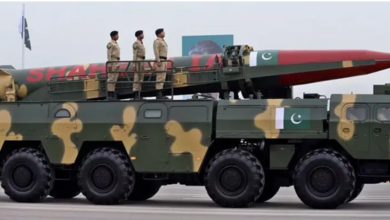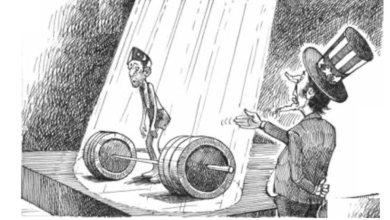If you recall, in recent times, some prominent figures who ventured into the political arena have not only become billionaires but are openly exploiting their immense wealth. Numerous high-ranking government officials, politicians, and technocrats are now indulging in luxury abroad, despite several of them facing serious bribery and corruption cases. Initially, they were absolved of their crimes under the NRO (National Reconciliation Ordinance), and later, with the slogan of reshaping the nation’s destiny, they came to power. Their first order of business was to legislate to absolve themselves of their cases, presenting themselves as paragons of virtue and once again serving the nation, despite being accused of embezzling billions. Some even went so far as to invite those accused of massive theft to the Presidential Palace, bestowing them with medals of honour for exceptional service, shamelessly mocking the nation.These are the lucky few who, having disguised themselves as sheep, have again become the masters of our beloved nation’s fate.
There were those who oversaw the financial sector of our cherished Pakistan and were policy-makers. As long as the wind was favourable, they controlled the reins of power. Their loyalty to their benefactors, whom they were indebted to, was so intense that they forgot the welfare of the suffering masses, mortgaging not just the country but even future generations. They indulged the elite in luxuries. Our great friend, the revolutionary leader Mao Zedong of China, and his comrade Zhou Enlai, embraced simplicity and endured hardships. When leaders adhere to principles, it becomes easier for the people to accept and follow them wholeheartedly. The sacrifices of the first generation after the revolution bore fruit, and China has now become one of the greatest nations in the world, while we continue to wander with a begging bowl, unnoticed by anyone.
We are subservient to the United States, whose officials and agents issue commands that we dutifully follow. The irony is that many of these agents are benefiting from us, receiving their share through bribes. Often, when we borrow from foreign countries or financial institutions, these “angels” seize a significant portion under the guise of consultancy and services. They also distribute some of the “booty” among their local cronies, ensuring that the real game remains concealed behind the scenes and that the golden-plumed songbirds continue to sing until the government changes.
When the government changes, these seasonal frogs may fall silent for a while as if they have sunk into a swamp, but soon they will resurface. The tune will start again, but the rhythm will be different. The narrative will shift to destruction, and tales of devastation will be told, making the listener lament and wonder how such a beautiful country can be plagued by wolves that not only roam freely but also rise to high positions. These fortune-seekers are made of such slippery material that even the sacred trust of public confidence cannot affect their ingrained greed and avarice. They not only boldly seize opportunities but also take pride in their “bravery and courage.” When caught later, instead of showing remorse, they defend their actions so defiantly that even the judges in the highest courts have to remark that “corrupt elements are not ashamed but walk with great arrogance… The government has recovered millions of dollars from them by court orders, yet they continue to play golf. Society should stay away from them and boycott them.” However, we forget that this insidious disease of corruption is also thriving within the homes of the very doctors who are prescribing its cure.
The fault also lies with society. When the ability to distinguish between good and evil weakens, humility is seen as a weakness, and avoiding wrongdoing is deemed cowardice, then why shouldn’t the wolves take on the role of shepherds for the flock? It is often said that human nature inherently holds a clear sense of both good and evil and is not devoid of the spirit of fighting against wrongdoing. However, the pressure of circumstances often compels one to remain silent. Daily observations give clear signs that seeking unnecessary trouble is sheer folly. Those who recklessly jump into foreign fires often find their feet scorched and sometimes face a fate worse than death.
Wisdom encourages them to remain silent and endure rather than confront injustice, cruelty, and ruthlessness. Thus, their tolerance grows, emboldening the self-righteous tyrants who, like the Mongol invaders, storm every meadow. Faced with the rising storm, not only do the defenceless and helpless people lose their power, but the very spirit of humanity also abandons them. The ever-turning sky witnesses a strange sight: a distinguished citizen in a conquered city falls into the hands of an unarmed Mongol, who commands him to lie down, which he does without protest. The Mongol then says, “Stay here until I fetch a sword from the camp to cut your throat,” and departs. The distinguished citizen remains motionless, with no thought of escape or saving his life. After a while, the Mongol returns and cuts his throat.
No one wishes to have their neck cut off needlessly. How can a defenceless multitude stand against a heavily armed army, especially when a massacre has been sanctioned or is imminent? When Hulagu Khan decimated the people of Baghdad, the river turned red with blood. Nader Shah flattened Delhi, and human blood flowed through the streets like rainwater. In 1857, Delhi, which had repeatedly been devastated, faced a similar tragedy. The corpses of princes hung from trees for days, and many wealthy individuals who had lived in luxury were sacrificed to the bloodshed. Those who survived were compelled to bow at the feet of the victors, striving with all their might to prove their loyalty, shaping their obedience into a condition of permanence as if it were true faith.
Justice Muhammad Rustam Kiyani, in his address on Iqbal Day in 1959, referenced a line by a troubled poet:
دیکھتا کیا ہے میرے منہ کی طرف
قائد اعظم کا پاکستان دیکھ
“Why do you look at my face?
Look at the Pakistan of Quaid-e-Azam.”
At that time, Justice Kiyani was the legal advisor to the government. He was asked which section applied to this statement. He responded, “Oh servants of God! He is merely saying, ‘Why do you look at my face? Look at Pakistan. Is it the same country that Quaid-e-Azam envisioned?’” … Now, perhaps the very spirit of Pakistan also questions its “devotees”: Can we provide an answer? How many of us have ever taken the trouble to think or find out how the blessed state of Pakistan emerged on the stage of existence? What were the dreams of the founders of Pakistan? What were their desires, hopes, and ideals? What did the Father of the Nation think, want, and what destination did he set? How was that destination to be reached? Is that destination lost in the darkness, or can it still be seen? History attests that freedom was never achieved through pleas and requests.
Even after wandering in the Sinai Desert for forty years, the people of Moses eventually reached their destination. If the sense of loss becomes gripping, who knows, we might also rediscover lost paths. We could free ourselves from the confinement of our own selves, abandon the notion of personal gain as the sole purpose of life, and regard the welfare of the nation and the people not only as our duty but be willing to make some sacrifices for it.
Wouldn’t it be a new dawn when many among us would boldly speak the truth without hesitation? How delightful it would be when, transcending party loyalties and breaking free from the chains of friendship and kinship, our leaders fulfill the demands of justice and equity, and the dust on Quaid-e-Azam’s noble face begins to clear. It is a severe test, and the nation waits with a noose in hand. Let us see who will falter!






